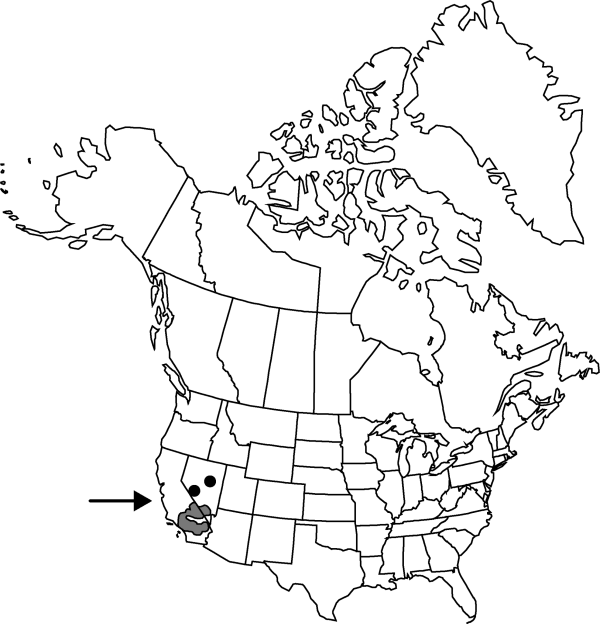Atriplex parryi
Proc. Amer. Acad. Arts 17: 378. 1882.
Shrubs, dioecious, mainly 2–5 dm, armed. Leaves, short petiolate to sessile; blade orbiculate-cordate, or ovate-deltate to elliptic, 7–16(–22) × 6–10(–16) mm, base truncate or tapering, entire or less commonly subhastate. Staminate flowers in glomerules on interrupted, leafy paniculate spikes. Pistillate flowers in small glomerules borne in leafy, paniculate spikes. Fruiting bracteoles sessile or nearly so, truncate-flabelliform, 3–4 × 3–5 mm, thick and rigid, spongy, united to beyond middle, margin entire, faces smooth. Seeds brown, 1.3–1.9 mm.
Phenology: Flowering spring–fall.
Habitat: Saline, fine-textured soils
Elevation: 60-1500 m
Discussion
Atriplex parryi occurs with greasewood, saltbush, saltgrass, and Nitrophila. The cordate-clasping, sessile leaves and spiny branches distinguish this species from its nearest congeners.
Selected References
None.
